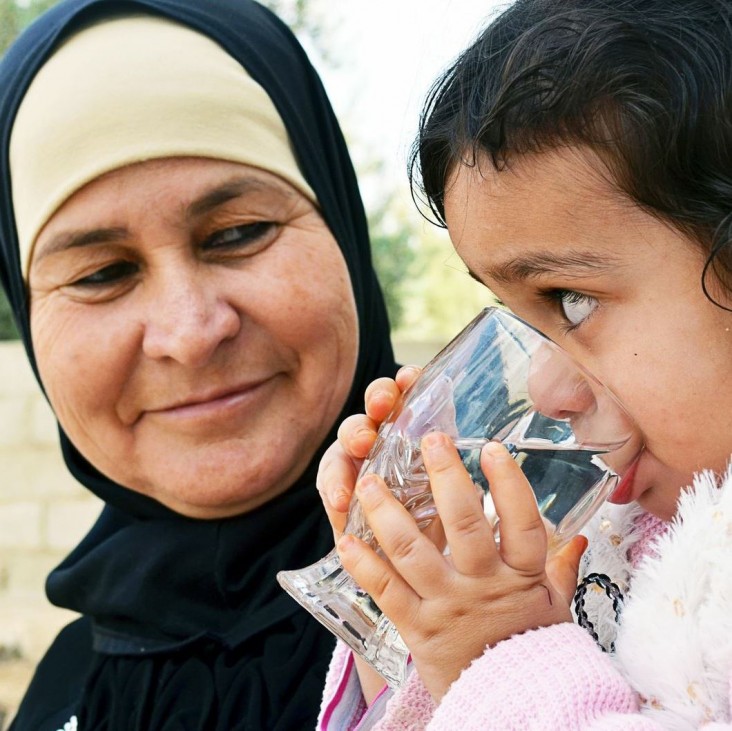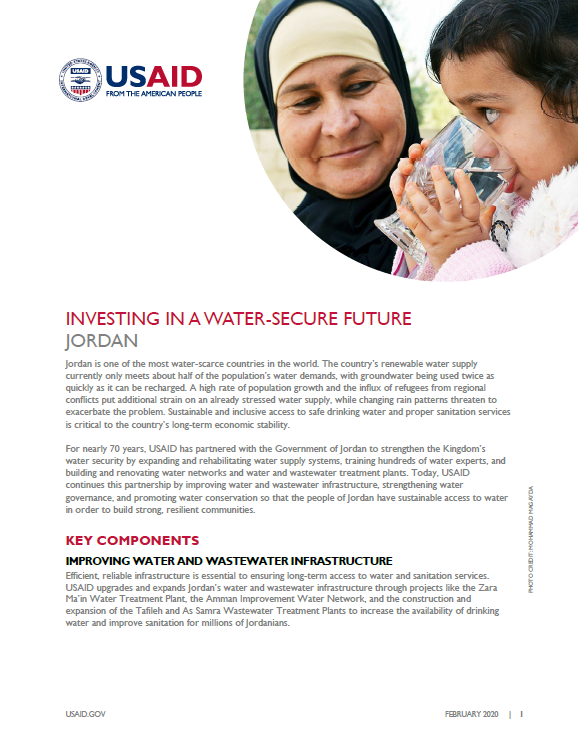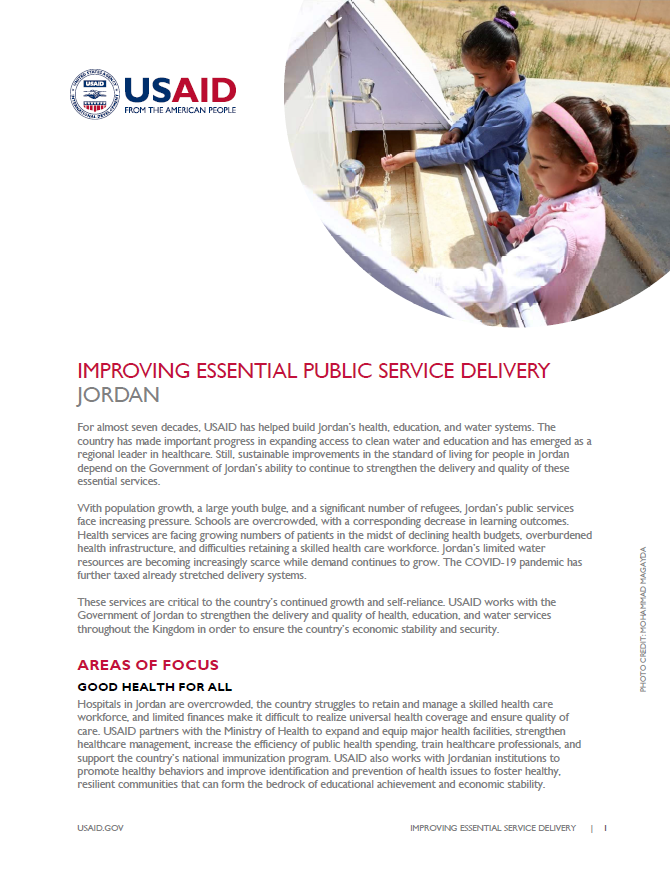Speeches Shim

BACKGROUND
Jordan is one of the most water-scarce countries in the world. The country’s renewable water supply currently only meets about half of the population’s water demands, with groundwater being used twice as quickly as it can be recharged. A high rate of population growth and the influx of refugees from regional conflicts put additional strain on an already stressed water supply, while changing rain patterns threaten to exacerbate the problem. Sustainable and inclusive access to safe drinking water and proper sanitation services is critical to the country’s long-term economic stability.
For nearly 70 years, USAID has partnered with the Government of Jordan to strengthen the Kingdom’s water security by expanding and rehabilitating water supply systems, training hundreds of water experts, and building and renovating water networks and water and wastewater treatment plants. Today, USAID continues this partnership by improving water and wastewater infrastructure, strengthening water governance, and promoting water conservation so that the people of Jordan have sustainable access to water in order to build strong, resilient communities.
AREAS OF FOCUS
Improving Water and Wastewater Infrastructure
Efficient, reliable infrastructure is essential to ensuring long-term access to water and sanitation services. USAID upgrades and expands Jordan’s water and wastewater infrastructure through projects like the Zara Ma’in Water Treatment Plant, the Amman Improvement Water Network, and the construction and expansion of the Tafileh and As Samra Wastewater Treatment Plants to increase the availability of drinking water and improve sanitation for millions of Jordanians.
Strengthening Governance
Jordan loses up to half of its water to non-revenue water – water lost to leaky pipes, theft, and under-billing. In order to reduce water losses and facilitate sustainable water management, USAID works with the Ministry of Water and Irrigation to strengthen water sector policies, implement staff training and reforms for water utilities, replace old water networks and introduce smart metering and rapid leak detection.
Promoting Water Conservation
Jordan’s agriculture sector consumes over 50 percent of the country’s precious water supply, while contributing only four percent to the gross domestic product. USAID offers support services to scale up the use of water-saving technologies by farmers and households in order to conserve the country’s limited water resources. By promoting behavioral change among the public and policy makers, and partnering with the private sector, USAID is cultivating a renewed stewardship of shared water resources to ensure water remains available for the people of Jordan.
NOTEWORTHY ACHIEVEMENTS:
-
USAID has improved water and sanitation services by building water and wastewater networks, treatment plants, and pumping stations. Examples include the Zara Ma’in Water Treatment Plant, which provides drinking water to an estimated 1.7 million residents in Amman, As Samra Wastewater Treatment Plant, which treats almost 70 percent of the Jordan’s wastewater.
-
Water utilities in Amman and southern and northern Jordan have reduced water loss from 44 percent to 26 percent in eleven distribution zones through USAID-supported reforms interventions such as network rehabilitation and installation of smart meters, some of which were provided by the Alabama firm Neptune, to reduce water losses. This reduction is expected to save 7.0 million cubic meters of water in 2020, enough to meet the demands of 190,000 people annually.
-
Non-revenue water causes a financial loss of more than 700 million USD per year. The reduction in water loss resulting from USAID support is expected to save water utilities 25 million USD in 2020, which the Government of Jordan has committed to reinvesting in reducing non-revenue water. By reducing inefficiencies and increasing the financial viability of the water sector, these interventions build self-sufficiency in utilities so they can continue to deliver water to millions of Jordanians.
-
Highly treated water from the USAID-funded construction of wastewater treatment plants provides Jordan with 120 million cubic meters of water safe for agricultural use, enough water to fill 48,000 Olympic swimming pools. These water savings are critical in alleviating the agriculture sector's heavy consumption of the country’s water supply, making fresh water available for drinking use.




Comment
Make a general inquiry or suggest an improvement.